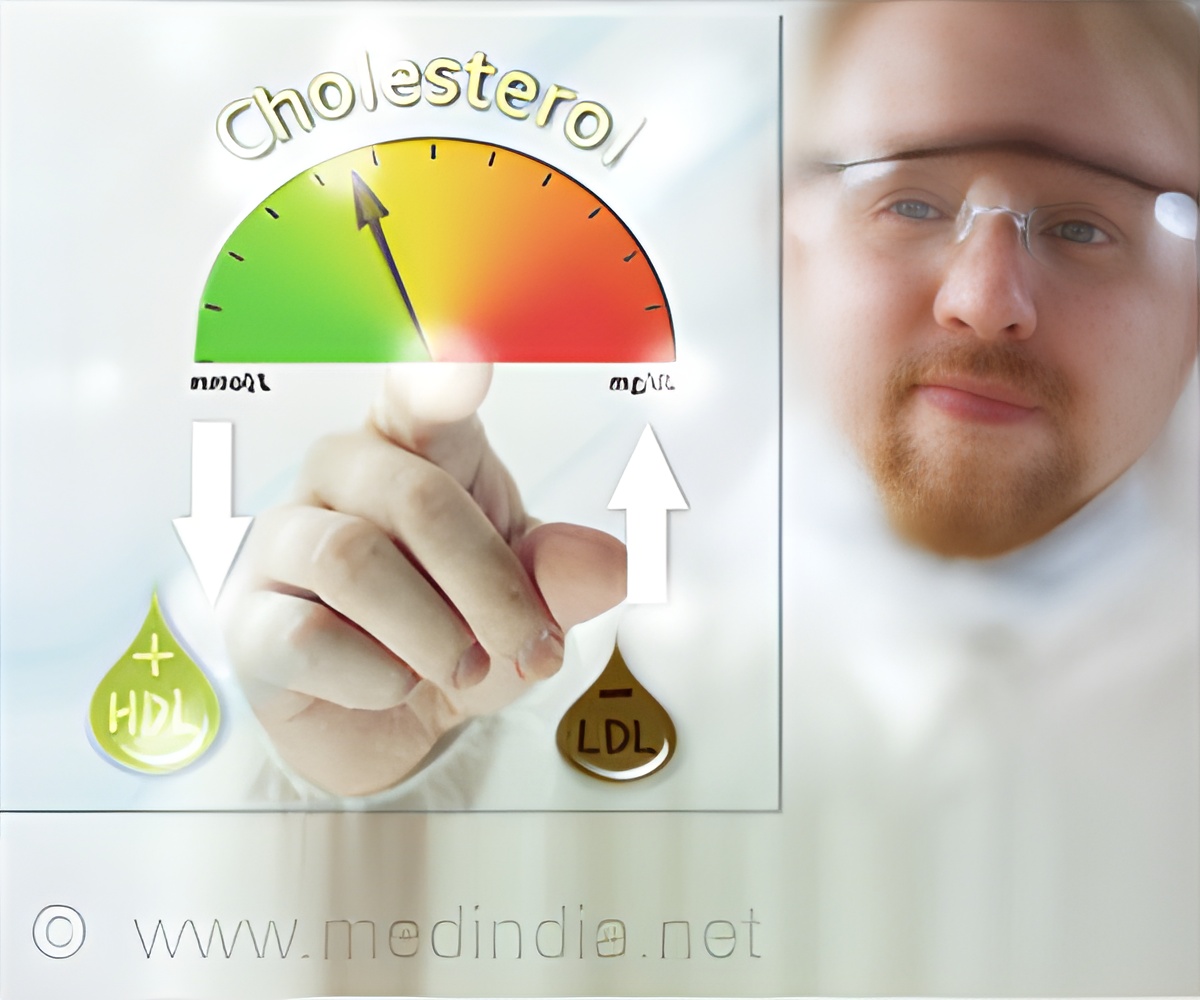Can good cholesterol improve heart health? Higher levels of HDL cholesterol (good cholesterol) may not reduce the risk of heart disease.

‘Lower levels of HDL cholesterol (good cholesterol) may increase the risk of heart disease. However, higher HDL levels do not boost heart health.’
Read More..




The research, which published in the Journal of the American College of Cardiology, found that while low levels of HDL cholesterol predicted an increased risk of heart attacks or related deaths for white adults – a long-accepted association – the same was not true for black adults. Additionally, higher HDL cholesterol levels were not associated with reduced cardiovascular disease risk for either group. Read More..
“The goal was to understand this long-established link that labels HDL as the beneficial cholesterol, and if that’s true for all ethnicities,” said Nathalie Pamir, Ph.D., a senior author of the study and an associate professor of medicine within the Knight Cardiovascular Institute at Oregon Health and Science University, Portland. “It’s been well accepted that low HDL cholesterol levels are detrimental, regardless of race. Our research tested those assumptions.”
To do that, Pamir and her colleagues reviewed data from 23,901 United States adults who participated in the Reasons for Geographic and Racial Differences in Stroke Study (REGARDS). Previous studies that shaped perceptions about ‘good’ cholesterol levels and heart health were conducted in the 1970s through research with a majority of white adult study participants. For the current study, researchers were able to look at how cholesterol levels from black and white middle-aged adults without heart disease who lived throughout the country overlapped with future cardiovascular events.
Link Between Cholesterol and Heart Disease
Study participants enrolled in REGARDS between 2003-2007 and researchers analyzed information collected throughout a 10- to 11-year period. Black and white study participants shared similar characteristics, such as age, cholesterol levels, and underlying risk factors for heart disease, including having diabetes, high blood pressure, or smoking. During this time, 664 Black adults and 951 white adults experienced a heart attack or heart attack-related death. Adults with increased levels of LDL cholesterol and triglycerides had modestly increased risks for cardiovascular disease, which aligned with findings from previous research.Is HDL Cholesterol Really Good for Heart
However, the study was the first to find that lower HDL cholesterol levels only predicted increased cardiovascular disease risk for white adults. It also expands on findings from other studies showing that high HDL cholesterol levels are not always associated with reduced cardiovascular events. The REGARDS analysis was the largest US study to show that this was true for both Black and white adults, suggesting that higher than optimal amounts of ‘good’ cholesterol may not provide cardiovascular benefits for either group.“What I hope this type of research establishes is the need to revisit the risk-predicting algorithm for cardiovascular disease,” Pamir said. “It could mean that in the future we don’t get a pat on the back by our doctors for having higher HDL cholesterol levels.”
Pamir explained that as researchers study HDL cholesterol’s role in supporting heart health, they are exploring different theories. One is quality over quantity. That is, instead of having more HDL, the quality of HDL’s function – in picking up and transporting excess cholesterol from the body – may be more important for supporting cardiovascular health.
Advertisement
“HDL cholesterol has long been an enigmatic risk factor for cardiovascular disease,” explained Sean Coady, a deputy branch chief of epidemiology within the National Heart, Lung, and Blood Institute (NHLBI)’s Division of Cardiovascular Sciences. “The findings suggest that a deeper dive into the epidemiology of lipid metabolism is warranted, especially in terms of how race may modify or mediate these relationships.”
Advertisement
“When it comes to risk factors for heart disease, they cannot be limited to one race or ethnicity,” said Pamir. “They need to apply to everyone.”
Source-Eurekalert















